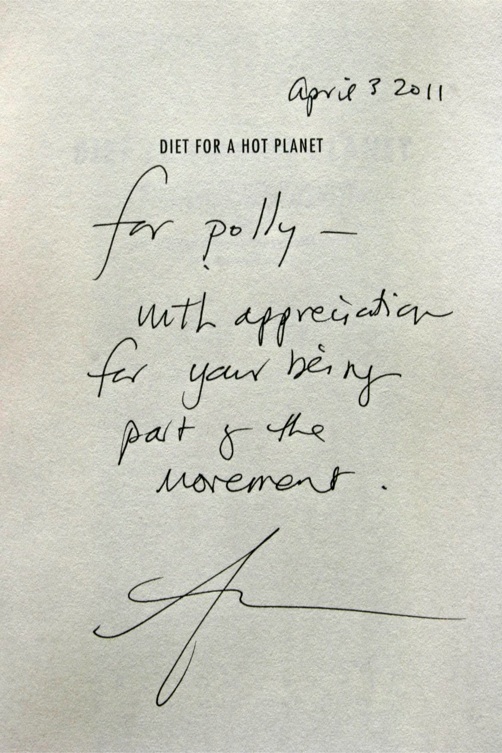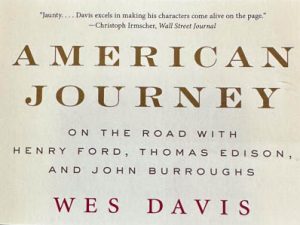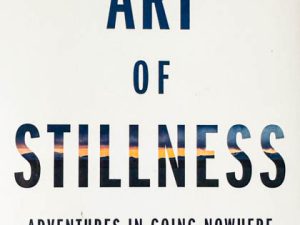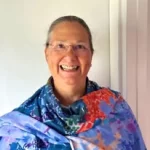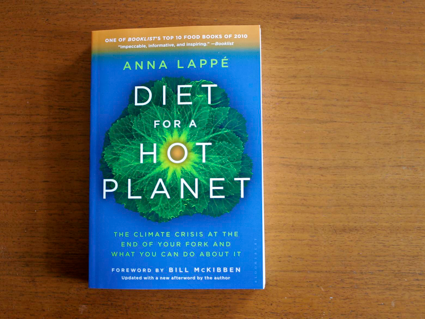
Today I had the privilege of hearing Anna Lappe speak. She is the author of Diet for a Hot Planet. (I bought –and got signed– her book today but haven’t read it yet). Her mother, Frances Moore Lappe, is the author of Diet for a Small Planet, which over 30 years ago was instrumental in me becoming a vegetarian. These same issues, important already then, are topics of increasingly hot importance today. It was heartening to see her talk to a large passionate crowd. Interest and understanding of these issues is growing, which is so needed and helpful. The consensus in the room was that, “Most people want to do the right thing, they just don’t know what the right thing is.”
Here are some of the things that were discussed:
• Even the elite town of Westport now has a town farm and a farm class in their High School. Thirty schools in the district, in fact, have school gardens.
• Forty years ago, the number of farmer’s markets in existence were down nationally to only a couple hundred, but today there are 6300 of them nationally. That increase represents a lot of dedicated, hard work on many people’s part! Now low income folks can even apply for “health bucks” where two dollars at a farmer’s market can buy them five dollars of food.
• As my readership knows, 33% of all emissions are related to food. Livestock worldwide is responsible for 18% of carbon emissions, which is more than planes, trains and much other transportation, combined. (It’s not the cow’s fault; they can be sustainably grown but generally aren’t.)
• Only in the last two years has the scale tipped: more people live in cities instead of farms for the first time in history. Many people are being pushed off land they previously farmed for their own use, and end up going hungry in cities because their land was taken over by big agribusiness.
• One out of every five health dollars spent are for diet related illnesses, preventable by sustainable agricultural practices.
• Facts are on our side but this is not enough. When the facts we get contradict the mental maps and presumptions we already have, it is easier to jettison the facts than change our thinking or outlook. We need to be able to reshape the scaffolding of our thought, to accommodate new information in a rapidly changing world.
• Most people think that the organic model cannot produce enough food to feed enough people, but the opposite is actually true. We need knowledge intensive farming instead of energy intensive farming. Wastefulness in the system is what is causing world hunger, along with poisoning and stripping of the soil using chemicals and monoculture. One billion people will starve this year. We need to understand that the industrialization of food is the cause of the world hunger problem, not the solution for it.
• Business as usual is really no longer an option, but a lot of powerful companies have a major stake in the status quo.
• See her websites by clicking here and clicking here.
• Can we incentivize what food is good for humans nutritionally as well as for the environment’s sustainability, instead of letting corporations dictate the profit incentive as paramount? It will indeed take a paradigm shift, and that shift is already beginning at the grassroots with people like I saw today.
• We need to no longer think that, “I am what I eat,” and instead realize, “I am what you eat.” That’s how much we are in this together.
